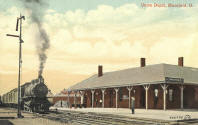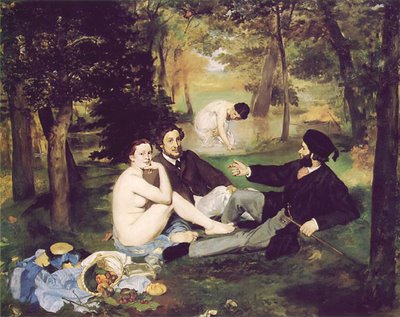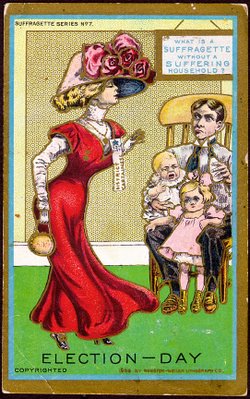The second of three completed installments of Augustus and Winston conversations. This one is called THE MIND. A whimsical meeting of a dying man and a beast (well a mouse) who cuts him no slack. AUGUSTUS AND WINSTON
CONVERSATIONS:
THE MINDBy Jim Kittelberger
His eyes, wide open, stared at the ceiling at that gray on gray time of the night. That time when your mind sees everything crystal clear without the coloration of sun and shadows; When everything is so clear and dimensional, without hopes or wishes to cling to; when the truth is so omnipresent it is accompanied by an almost physical pain, and there is absolutely no place to hide, no appeals to make, no excuses, no chance of a mistake. It’s the time when truth, your truth, crashes into you head on.
It was that moment for Gus. He knew his moment of truth was arriving, when the future, his future, was written in the shadows of the ceiling. He knew for a certainty that he would never again leave this bed. He knew that he would never again feel that built up physical energy, pent up after a good nights sleep and hardly able to contain itself one minute longer, straining to burst free and run. Just run, full out, with the wind in his face, running just for the hell of it because it felt so good, no reason for it except the feeling of legs raising and lowering like pistons, well-oiled and functioning as God planned for them to work. Sweat breaking out on his forehead, falling as gravity says it must, into his eyes and stinging; then falling, with no thought of pain, injury, or reason, onto the clean smelling grass and rolling until he lay on his back, arms and legs spread wide, looking up into the sun, smiling to himself, just because it seems like such a natural thing to do.
Gus lies there in his bed, smiling the smile he remembered from so long ago, when a familiar voice breaks into his reverie.
“That smile you have on your face tells me you must be revisiting the good times you had in your youth, in that bordello across the border”, came the irreverent voice of his companion these days, Winston Cartier.
“You know”, retorted Gus, “It just occurred to me that your initials are WC, I think it might stand for Water Closet, that place where your mouse mind resides.”
“That’s pretty good for an old coot like you,” responded Winston, “it shows you still have a little life left in you,” he said, showing Gus little or no sympathy for his present physical condition, or his status as a human.
“It’s good to see you again, you little badgering know-it-all, even with that toilet mouth of yours. Even though you’re dead wrong about where my mind was residing at the moment of your arrival.”
“Well, my frail friend, your mind is, well, your mind. It’s yours to use for good or ill. A quite powerful instrument for a piece of matter that only weighs three pounds, that is for you humans. For us in the mouse kingdom, it is of course less in direct relation to our size. Of course, in my case, if you believe in heredity, my offspring, if I choose to have any, should have a larger allocation of brain space. It is well known…..”
“Stop please,” interjected Gus. “I can’t take anymore. I am well aware of your mental powers, but please, I’m not a well man and I can take only so much baloney, from man or beast, er mouse.”
“As a matter of fact,” Gus continued, “The source of the smile you happened to glimpse, was from one of the powers of our brain, our memory. I happened to be recalling, quite vividly, I might add, a moment in life where nothing else mattered except the moment. When life is stretched out in front of us forever, and time is irrelevant. Death was a nebulous term with no meaning. Our grandparents were still with us and the only time that word death had any meaning was perhaps at the death of a pet goldfish or dog, sad, but forgotten with the acquiring of a substitute. Perhaps, as I think of it now, it teaches a bad lesson, or no lesson at all, that death is not a permanent thing, and when it happens, we just acquire a different colored fish, or a dog with more hair. We learn nothing from the experience, and it teaches us that life, human or animal, is cheap and easily replaced.
“Maybe you didn’t learn anything Gus,” Winston replied, “but that’s just your experience. The mind doesn’t control us and tell us what to think or how to process information it receives. With it’s ten billion nerve cells it does a very good job of processing, but you have to interpret what information you get, but this is all getting too involved, and young humans are not yet old enough to make proper decisions with the information they receive, but I can assure you the experience is catalogued away and will be remembered forever and used as a database for making proper decisions at a later time in their lives. You higher class of vertebrates sometimes are a little dense, but eventually, if given enough time, will get it.”
“You don’t have to tell me the power of the mind, you wisenheimer rodent, I remember a time in my life when I was angry most of the time, angry because of my dissatisfaction with a situation that I could do nothing about, but I wore my bad attitude like a ill-fitting suit. That is until one day, while talking to my wife about my troubles, it came upon me like an epiphany that no one cared about my problems, except me and of course my poor wife who had to listen to the constant whining. It was like I discovered America and it was so simple. It was all in my mind. So many learned people had written books on the subject of positive thinking, but I was blind to them, until I changed my thinking and overnight, really, overnight my life changed.” Gus shook his head, “It was all so simple and I was too dumb to know it.”
“Life is a learning experience until we die,” said Winston, “I’m sure you’re still learning as you lie in what will surely be your death bed. Some sage says what you have accumulated through all your years is wisdom. Not just facts, but the experience to know what works and when to use it.” Winston actually smiled wistfully at the old man, then asked, “Tell me Gus, if you had the opportunity to live your life over, would you do anything differently? Now I’m not the genie with three wishes, not even one, so your answer is just rhetorical, I sadly cannot offer you new life.” Winston actually seemed moved just a little by asking the old man to rethink his entire life and encapsulate a gem for posterity, the answer for a happy life.
Gus laid his head back down on his pillow and thought for a moment. “Gladly, I can say I would not change much, except one thing. One thing sounds like I would wish for one more Hershey bar and that would close out a happy life, but the one thing I wish I would have done that I did not do, was to exercise the brain God gave me, by going on further in my schooling. I don’t have any way of knowing what would come from taking that path, but I feel it may have been like dropping a stone in the water and concentric circles appear over and over, expanding out to the shore. The waste, if that’s what it was, was my own doing, so I only have myself to blame for not knowing what might have been.”
Gus finished and looked over at his inquisitor, agitator, debating partner, late night companion and friend, “Not too bad, don’t you think, that I hold no grudges, owe no man, and have had the love of a wonderful woman and only have one regret for a lifetime, and that is wasting only what was mine to begin with.”
Winston, tipped his hat, an affectation he acquired after watching Rex Harrison in My Fair Lady, and replied, “Don’t get yourself all pumped up you old coot, with that pretentious eulogy you just gave yourself. You were probably too darn lazy to use anymore of your brain than you did, so be grateful with what you accomplished using only half of the brain God gave you and go to sleep dreaming about whatever you were dreaming about before. I still think it was that bordello just over the border and Madam Rosa’s best girls you were smiling about.”
Gus laughed out loud and then slept.




























